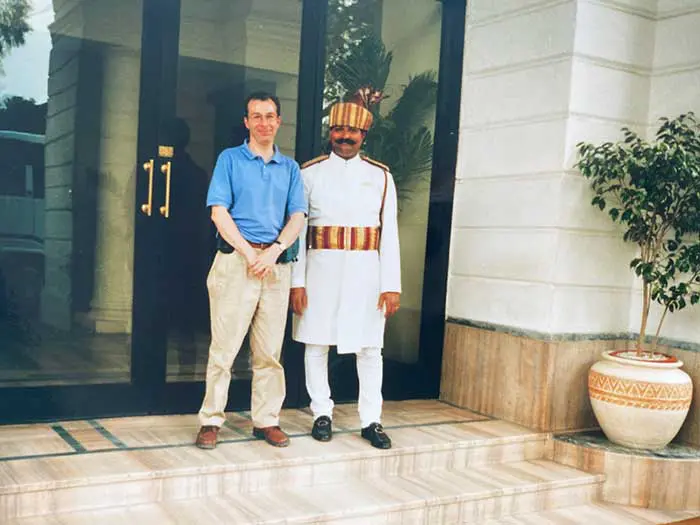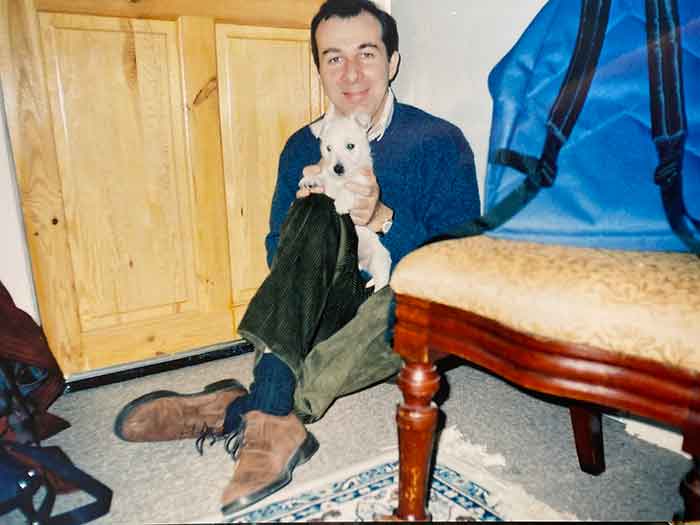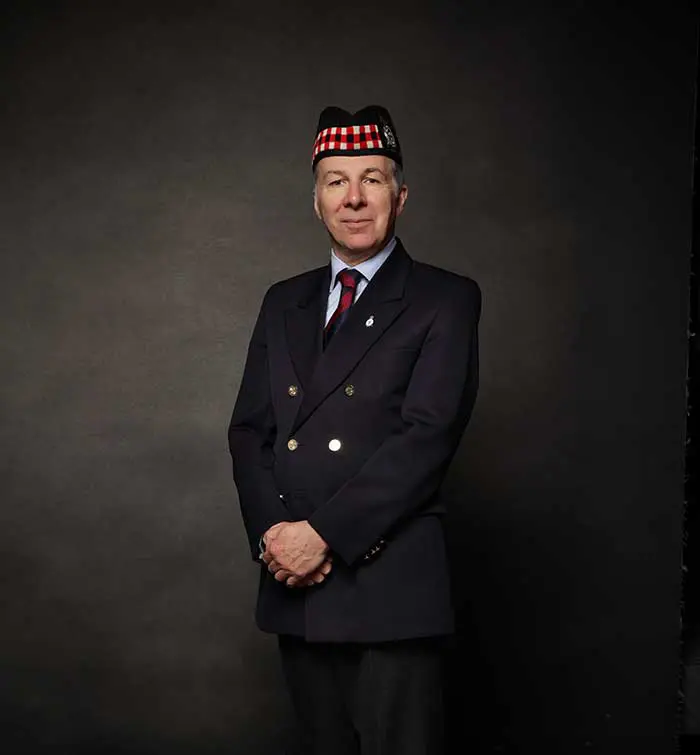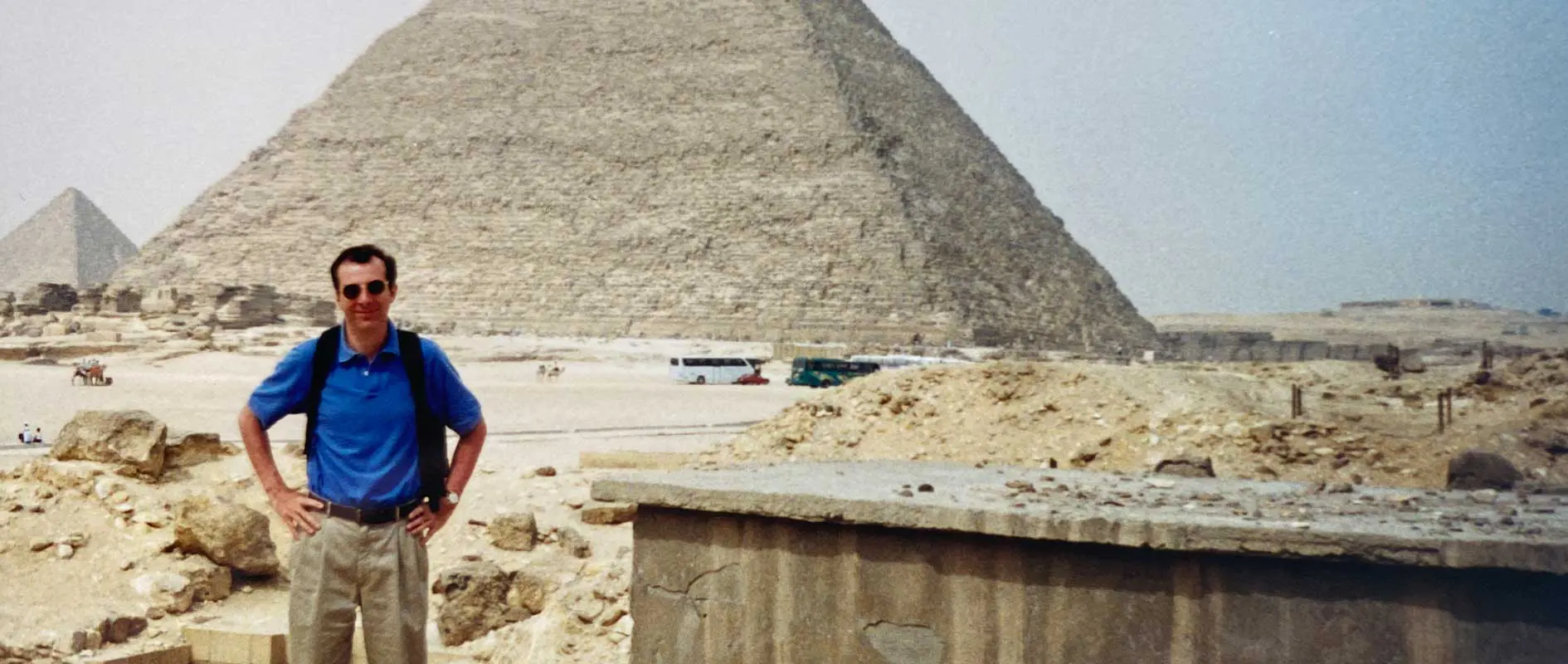“Many ex-Army personnel are down on their luck for a host of reasons. The most important aspect of the ABF’s work is taking care of them.”
Having worked in the legal profession for over 40 years, Harry Clark has prepared a lot of Wills during his career. “I must have drafted thousands that included charitable gifts! So I soon learned that this was popular thing to do,” he said.

A former member of the Territorial Army and a lifelong supporter of various charities, Harry has generously chosen to leave a gift in his own Will to the ABF, as a percentage of his estate. “I was only in the Territorial Army for two years, but they changed my life. I’m so proud to be associated with the Army Family and I want to help make a difference in their lives.”
Although Harry was born in Edinburgh, his roots are international.
His grandfather had served in the First World War and was part of the Indian Army regiment during World War Two. “My father was born in India, but my family settled in Edinburgh following India’s independence and partition,” said Harry. “This was down to my paternal grandmother, who was Scottish.”
Harry’s mother is German. “Essentially, she was a refugee after the Second World War and she met my father when he was on holiday in Germany. They agreed that she would come to Britain and work as an au pair, and then they got married.”
Harry was very grateful to have the opportunity to live abroad, which was due to his father’s itinerant role as an English teacher for the British Council.
“My formative years were spent in Ethiopia at an international school, where I mixed with children from lots of different backgrounds. I was also very proud to have met Ethiopia’s then-Emperor, Haile Selassie.”

“Later, I was sent back to Edinburgh and attended a very good school – although it was a boarding school with no parental guidance, so the atmosphere was quite feral at times! But I would go and see my grandmother at weekends and she instilled a sense of direction, teaching me right from wrong as I grew up. Without her, I wouldn’t be the person I am today.”
After leaving school, Harry worked for the Foreign Office in London, then qualified as a solicitor. He moved back to Edinburgh in 1981 and still resides there today. “I like to travel, and I’ve been fortunate enough to visit places like Nepal and South Africa to see how other people live,” he said. “But for me, Edinburgh is home.”
During his time in the Territorial Army, Harry was befriended by a training major for the Argyll and Sutherland Highlanders.
“He told me I was just the sort of chap that they’d like to have as a platoon commander. I was so pleased and proud to be asked and we kept in touch during my officer training. I was due to go to Sandhurst for more training, but unfortunately, my busy law firm just couldn’t let me go and that was the end of that. That training major was a really lovely guy and I felt I let him down. It’s something I’ve carried with me ever since.
These days I’ll do anything not to let people down, and I think that’s also why I’m such a big supporter of the Armed Forces.”

“I think adjusting from the Army into civilian life can be hard, particularly for soldiers without technical or professional qualifications. It’s not easy for everyone, so welfare support from charities like the ABF is vital.”
Harry firmly believes in the collective power of charitable donations and gifts. “When you think of donors as a whole it’s amazing, because you have that powerful combination of people who can afford to give a lot, and those with more modest means.
It all adds up, so I’ve chosen to leave a share of my estate to the ABF. I’m doing that rather than leaving a fixed amount, because the value of a fixed amount will erode over time. After you have taken care of your loved ones, leaving a share of your estate means charities will receive a greater benefit than they might have otherwise.”
“Ultimately, I would like the Army Family to know that I am there for them, as they have been for me. It gives me great satisfaction to know that I will contribute to their wellbeing when they leave service.”

